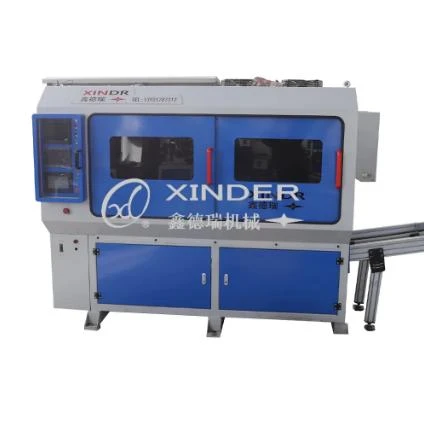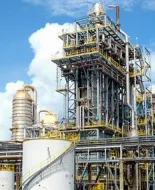-
 8613931787312
8613931787312 -
 Botou Industrial Zone on the east side of National Highway 104, Botou City, Hebei Province
Botou Industrial Zone on the east side of National Highway 104, Botou City, Hebei Province
- Afrikaans
- Albanian
- Amharic
- Arabic
- Armenian
- Azerbaijani
- Basque
- Belarusian
- Bengali
- Bosnian
- Bulgarian
- Catalan
- Cebuano
- Corsican
- Croatian
- Czech
- Danish
- Dutch
- English
- Esperanto
- Estonian
- Finnish
- French
- Frisian
- Galician
- Georgian
- German
- Greek
- Gujarati
- haitian_creole
- hausa
- hawaiian
- Hebrew
- Hindi
- Miao
- Hungarian
- Icelandic
- igbo
- Indonesian
- irish
- Italian
- Japanese
- Javanese
- Kannada
- kazakh
- Khmer
- Rwandese
- Korean
- Kurdish
- Kyrgyz
- Lao
- Latin
- Latvian
- Lithuanian
- Luxembourgish
- Macedonian
- Malgashi
- Malay
- Malayalam
- Maltese
- Maori
- Marathi
- Mongolian
- Myanmar
- Nepali
- Norwegian
- Norwegian
- Occitan
- Pashto
- Persian
- Polish
- Portuguese
- Punjabi
- Romanian
- Russian
- Samoan
- scottish-gaelic
- Serbian
- Sesotho
- Shona
- Sindhi
- Sinhala
- Slovak
- Slovenian
- Somali
- Spanish
- Sundanese
- Swahili
- Swedish
- Tagalog
- Tajik
- Tamil
- Tatar
- Telugu
- Thai
- Turkish
- Turkmen
- Ukrainian
- Urdu
- Uighur
- Uzbek
- Vietnamese
- Welsh
- Bantu
- Yiddish
- Yoruba
- Zulu
ഫെബ്രു . 11, 2025 19:42
Back to list
metal bending machine for sale
Finding the right metal bending machine can be a transformational decision for businesses in industries ranging from construction to manufacturing, aerospace, and automotive. A high-quality machine doesn't just enhance efficiency; it also opens up new possibilities for complex and precise metalwork projects. With numerous options available in the market, selecting the appropriate metal bending machine for sale involves considering several crucial factors.
An often-overlooked element is the after-sale support and warranty offered by manufacturers. Reliable service and maintenance packages are invaluable. Regular servicing not only prolongs the machine's life but also sustains its efficiency and accuracy over time. Spare parts availability and expert technical support can prevent extended downtimes and ensure continuous operation, which is critical for meeting production deadlines. Price is, understandably, always a factor. However, focusing solely on cost can be misleading. Initial investment should be weighed against long-term benefits. Opting for cheaper models might result in higher operational costs or frequent breakdowns, which ultimately incurs added expenses. Instead, emphasizing value over cost provides better returns. Machines that prove their worth in a short span through increased productivity and reduced operational hindrances end up being cost-effective in the long run. Trustworthiness is anchored on reviews and testimonials. Feedback from other companies who have used similar models can provide insights into the machine's performance in real-world scenarios. Established manufacturers with proven track records often offer products that embody quality, durability, and cutting-edge technology, reassuring potential buyers of their investment's value. In conclusion, purchasing a metal bending machine is a strategic decision that hinges on a thorough evaluation of technical specifications, operational requirements, and long-term benefits. By leveraging expertise and considering factors like machine type, user training, setup compatibility, and manufacturer support, businesses can make informed choices, enhancing their production capabilities and maintaining competitive edges. As such, these machines are not just tools but key assets in the progression towards industry excellence.


An often-overlooked element is the after-sale support and warranty offered by manufacturers. Reliable service and maintenance packages are invaluable. Regular servicing not only prolongs the machine's life but also sustains its efficiency and accuracy over time. Spare parts availability and expert technical support can prevent extended downtimes and ensure continuous operation, which is critical for meeting production deadlines. Price is, understandably, always a factor. However, focusing solely on cost can be misleading. Initial investment should be weighed against long-term benefits. Opting for cheaper models might result in higher operational costs or frequent breakdowns, which ultimately incurs added expenses. Instead, emphasizing value over cost provides better returns. Machines that prove their worth in a short span through increased productivity and reduced operational hindrances end up being cost-effective in the long run. Trustworthiness is anchored on reviews and testimonials. Feedback from other companies who have used similar models can provide insights into the machine's performance in real-world scenarios. Established manufacturers with proven track records often offer products that embody quality, durability, and cutting-edge technology, reassuring potential buyers of their investment's value. In conclusion, purchasing a metal bending machine is a strategic decision that hinges on a thorough evaluation of technical specifications, operational requirements, and long-term benefits. By leveraging expertise and considering factors like machine type, user training, setup compatibility, and manufacturer support, businesses can make informed choices, enhancing their production capabilities and maintaining competitive edges. As such, these machines are not just tools but key assets in the progression towards industry excellence.
Latest News
-
The Rise of Laser Welding: Precision Meets Power in Modern MetalworkNewsAug.06,2025
-
Streamlining Industrial Packaging: The Power of Barrel Production LinesNewsAug.06,2025
-
Revolutionizing Metal Joining: The Power of Automatic Seam Welding MachinesNewsAug.06,2025
-
Powering Industrial Innovation: The Role of Pipe and Tube Machinery in Modern ManufacturingNewsAug.06,2025
-
Exploring the World of Resistance Welding: Equipment, Manufacturers, and Pricing InsightsNewsAug.06,2025
-
Advancing Container Manufacturing: The Role of the Modern Can Welding MachineNewsAug.06,2025
-
Understanding Automatic Seam Welding Machines: A Game Changer in Welding TechnologyNewsJul.18,2025
related products
-
 Pneumatic Handle Welding MachineSep . 13, 2024
Pneumatic Handle Welding MachineSep . 13, 2024 -
 Fully Automatic Kaiping Production LineOct . 17, 2024
Fully Automatic Kaiping Production LineOct . 17, 2024 -
 Fully Automatic Metal Bucket Lifting HeadphonesSep . 14, 2024
Fully Automatic Metal Bucket Lifting HeadphonesSep . 14, 2024

